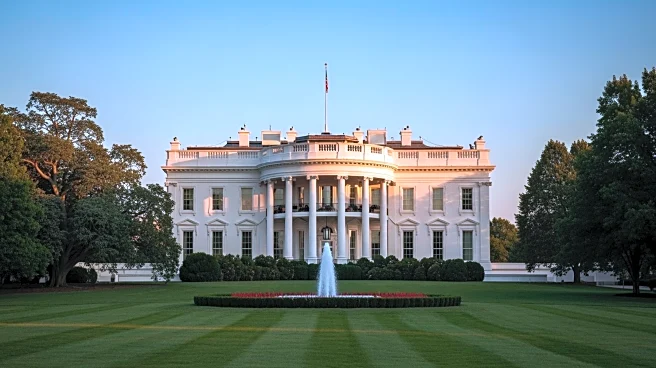What's Happening?
President Trump is set to welcome Ukrainian President Volodymyr Zelenskyy to the White House on Friday. The meeting is expected to focus on Ukraine's request for more advanced weaponry, including long-range Tomahawk missiles. This visit comes amid ongoing
tensions in Eastern Europe, where Ukraine is seeking to bolster its defense capabilities against potential threats. The discussions are likely to address military aid and strategic partnerships between the United States and Ukraine. Zelenskyy's visit underscores the importance of U.S. support in Ukraine's efforts to maintain sovereignty and security in the region.
Why It's Important?
The meeting between President Trump and President Zelenskyy is significant as it highlights the strategic alliance between the United States and Ukraine. The potential provision of advanced weaponry could enhance Ukraine's defense capabilities, impacting regional security dynamics. This development may influence U.S. foreign policy and defense strategies, particularly in relation to Eastern European geopolitics. The decision to supply long-range missiles could also affect international relations, with potential reactions from neighboring countries and global powers. The outcome of this meeting may have implications for U.S. military aid policies and international diplomatic engagements.
What's Next?
Following the meeting, potential next steps could include negotiations on military aid packages and further diplomatic discussions. The U.S. administration may evaluate the strategic benefits and risks associated with supplying advanced weaponry to Ukraine. Political leaders and defense analysts will likely monitor the situation closely, assessing the impact on regional stability and international relations. Future engagements between the U.S. and Ukraine may focus on strengthening defense cooperation and addressing mutual security concerns.
Beyond the Headlines
The request for advanced weaponry raises ethical and legal considerations regarding arms sales and military support. The decision to provide such weapons may prompt debates on international arms control and the responsibilities of global powers in conflict zones. Additionally, the visit may influence public opinion on U.S. foreign policy priorities and the role of military aid in international diplomacy.














